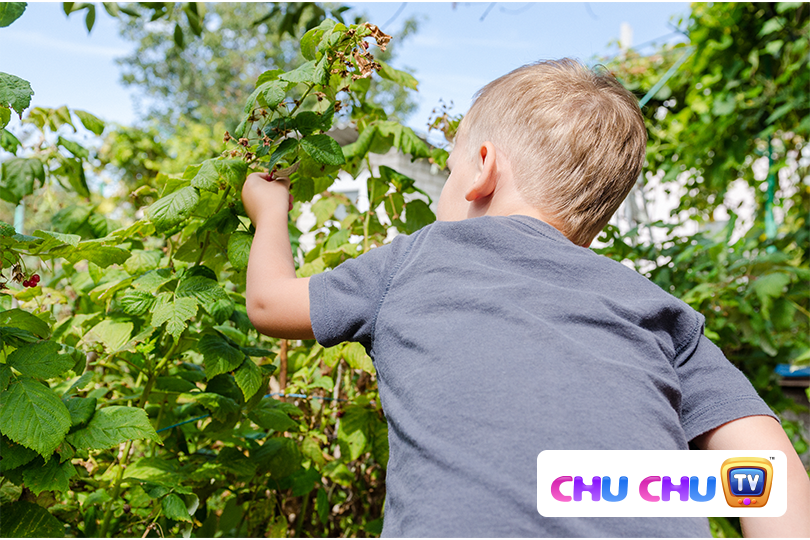Parenting is perhaps the most challenging task! Kids, we are talking about the preschoolers here, have a mind of their own. In their own logic they do things perfectly, but for parents it is far from being perfect. Trying to discipline your kid is an ever ongoing task and one that might leave you frustrated, tired or annoyed. On many occasions you would question – “Why doesn’t he/she co-operate with me?” There would be times when you are in a rush and want your toddler to do just what is being told. But on the contrary, your kid ends up delaying, avoiding or pestering you! Such instances would seem to be a part of your everyday parenting challenges.
When your kid shows repeated signs of non-cooperation there is a need to question yourself – are you going about the disciplining task, the right way? Are taking into account the child’s Psychology and asking for co-operation the way it should be? While you are wondering about such questions, we present to you some words that work best with the kids.
Tip #1: Replace “no” with logical phrases
Telling “no” to your kid is the easiest way to control him/her. But it is not the most logical way. Child Psychologists believe that overuse of the word “no” in your disciplining regime can have a negative impact on the minds of the children. When the word “no” is not followed or even replaced by a logical phrase toddlers tend to take a special note of what you are instructing. While the repeated use of the word can “breed resentment and plant future seeds of rebellion”. Whenever you feel like saying a simple “no” to your kid, stop then and there. Wait for a second and tell the kid why he/she should not do it, instead.
Tip #2: Avoid the promise of “may be tomorrow”
Toddlers are the greatest junk food lovers in the world. They just love to have chocolates, candies, ice cream and all the other unhealthy alternatives. Most of the time parents try to ward off their kids by making a promise of tomorrow. When you say “You can have the ice-cream may be tomorrow”, it does not make any difference to the kid. Toddlers cannot comprehend the idea of time. So, your promise will fall on deaf ears and they will still want what they want. So, in such situations you have to offer them a healthy alternative (may be yogurt instead of ice cream). You have to quickly find a healthy alternative and offer it to the kid, without making any false promises.
Tip #3: Explain rather than shout
Kids have a tendency to turn anything into their toys. So, when your kid is flinging food all over the floor from his/her plate, the kid is only playing. Child Psychologists opine that kids tend to play with food only when they are full from the previous meal. So, while you might feel like scolding and shouting on the kid, just hold back your anger. Rather you should try and explain why throwing food all over the house is not good. You should convey the point “food is for eating, not flinging”. A similar approach should be taken if your toddler is jumping on the bed. Just tell: “bed is for sleeping, not jumping”.
Tip #4: Avoid judging, rather participate with the toddler
This happens all the time when there are two kids in the house. The toddler just finds a way to destroy his elder siblings’ toys. This of course leaves the elder one annoyed and you start feeling that the little one is jealous. But in fact, your child is thinking completely differently. He/she does not have the intention of breaking elder brother’s toys; your child just wants to play with it in a very different way. Toddlers view the world differently and that should be respected. If you truly want to manage the actions of your little one, participate in his play. In this way, you would be able to control his actions, without being rude.
Tip #5: Replace “do not tear” with “you are hurting the plants”
It can be really annoying when you find your toddler tearing leaves from your prized plants in the garden. You would have the tendency to shout at him/her, but refrain from this. By shouting you will stop the action on one instance, but by educating the toddler you might put an end to this act. Just explain to him/her how plants too have feelings and it hurts when one tears their leaves or flowers. Also, give the child a responsibility to care for the plants. A similar exercise should be practiced when you find that your toddler is pulling the tail of family’s pet.
Tip #6: Avoid “do not hit your sister” with words that cultivate affection
Asking the toddler to stop being an aggressor and stop hitting her sister will not get any positive response. For toddlers do not have the understanding of what it means to hit others and how that is bad. You should rather calm the toddler by saying “we do not hit others when we are angry”. The acts of hitting another kid is just for the sake of seeking attention, and when you sit beside and explain the scenario it calms down the child. Ask your toddler to hug the other kid and cultivate the sense of affection between them.
Tip #7: Do not use “stop whining”, rather encourage the toddler to communicate
As days go past, your toddler would slowly learn new words but would continue to whine when she is protesting or wanting something, alike. This can be quite confusing and even irritate for you as a parent. But do not lose the calm, you should rather convince the child to communicate in his/her own way. By motivating your child to communicate you will soon find that he/she gets the message across through her tone and actions. This is a very good step towards the toddler learning to speak and communicating effectively with you.
Tip #8: Divert attention with silly tricks
Maybe the toddler is playing with a heavy ball in a room filled with glass, and you want to get him/her to cease the play, usually you would do so by saying a simple “no”. Now, that is not the ideal way. Toddlers love to laugh and you can create some hilarious distractions for him/her to divide attention. May be a simple “I am coming to get you”, or “Here comes the tickles” or chasing the kid to another room would be a great way to divert attention and get the kid into a safer playing zone.
Tip #9: Exchange Deals
Toddlers are especially fond of the things and gadgets that their parents use. Your child would want to hold the mobile phone each time it rings, and taking it forcibly away from him/her is not the best option. Rather you can practice the exchange deal; you can ask him/her to give the mobile in exchange for his/her favorite toy.
It is simple to remain logical while disciplining your toddler. Try some of these tips and write back to us with your experiences.



















It can help me a lot on how to discipline and to make myself calm, thanks for this very helpful idea..
Hope you found it helpful @LeahAbigail 🙂
Wow..that’s great @Leah Abigail 🙂
Thanks for this tips
Thank you @Omolola 🙂
For more such updates follow our blog http://chuchutv.com/blog and
youtube channel https://www.youtube.com/user/TheChuChuTV
Nice one, I really need this now. Thanks a million.
Hope it helped you, @Oserohwovo Princess 🙂 Stay tuned to our http://chuchutv.com/blog and youtube channel for more such updates.